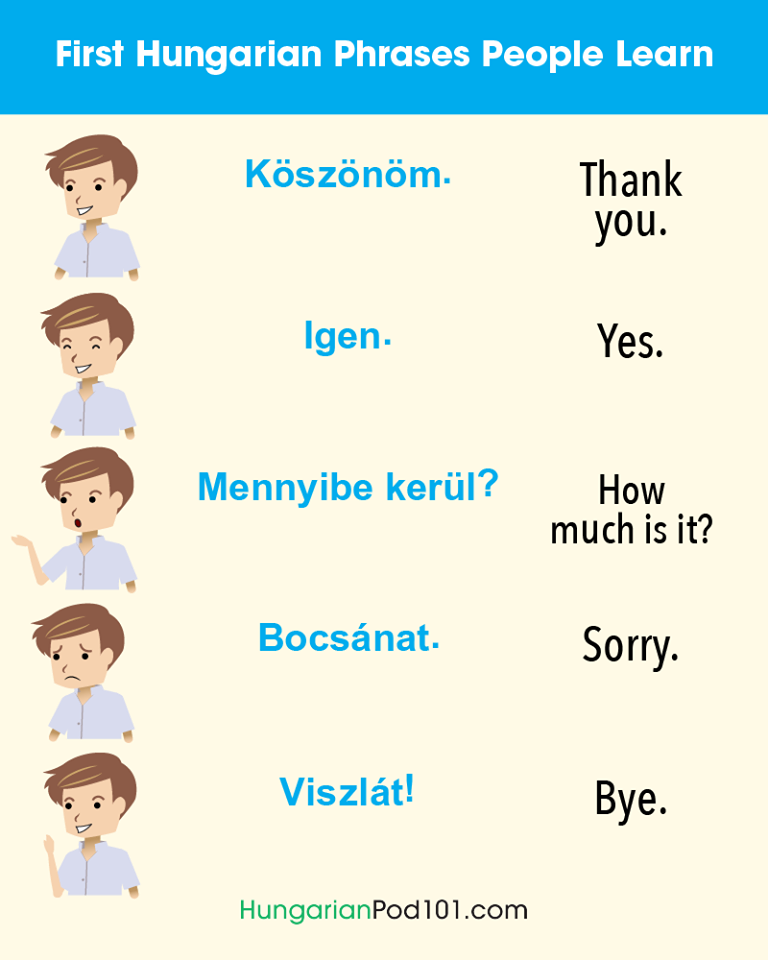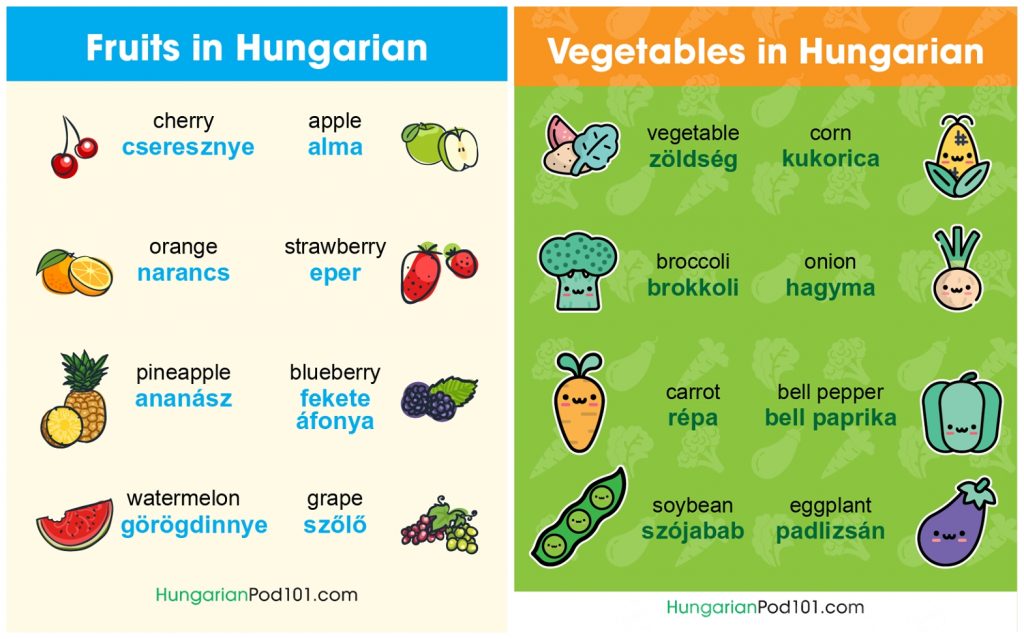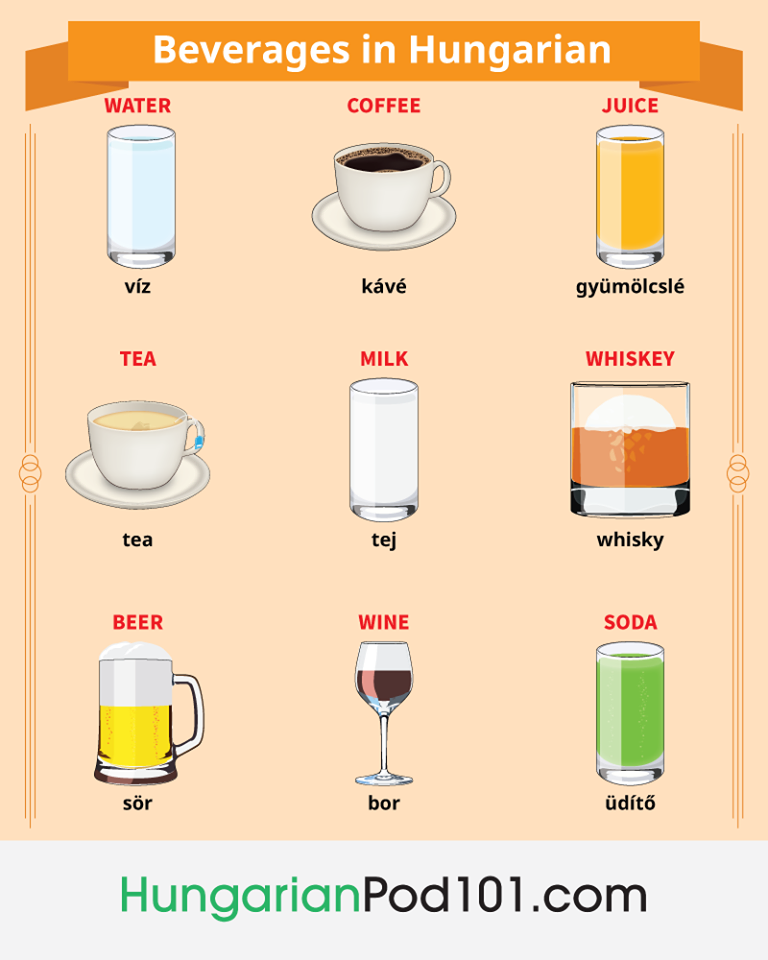Learning Hungarian – PART 4: doing the groceries

Change language:
Learning the basics like fruits, vegetables and clothing items in any language can prove very useful. Even if you are a tourist in Hungary, you will have to take a quick trip to the grocery store at some point, and it is always good to know the essentials in Hungarian.
Before we begin, check this quick pronunciation guide:
- Hungarian: c – English: tz (similarly to ‘tzar’)
- Hungarian: sz – English: s
- Hungarian: gy – English: d’
- Hungarian: cs – English: ch
Shop etiquette
From our previous articles, you could have easily mastered Hungarian greetings, so now when you step into a shop, you can try your skills and say ’Jó reggelt!’. Let us see what else you should pay attention to when shopping.

Aside from these phrases, the more useful ones are the following:
I would like some (name of item) = (Valamit) szeretnék kérni/venni
I would like to buy 1 kilogram of (name of item) = Egy kiló (valamit) kérek
Where can I find the (name of item)? = Hol találom a (valamit)?
I do not need a bag = Nem kérek zacskót
I would like to pay by card = Kártyával fizetek
Is this a Hungarian product? = Ez magyar termék?
Fruits and vegetables
In many languages, the names of some fruits and vegetables are very similar – for example, ‘apple’ in English and ‘apfel’ in German – or the same, take for example ‘orange’ which is the same in both English and German, among many others. However, Hungarian has a funny way of approaching things because it belongs to an entirely different language family. Nevertheless, you are lucky when it comes to bananas and kiwis in Hungarian; we call them ‘banán’ and consequently ‘kivi’.







